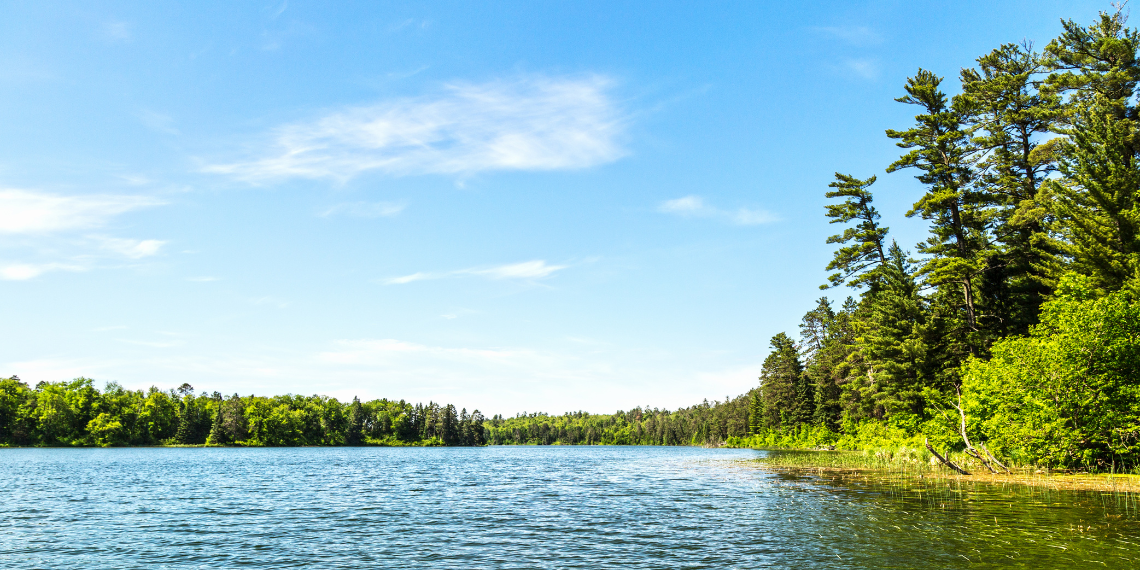Unraveling the Effects of Warming Lakes on Fish Communities

Lake temperatures are rising around the world. This might come as a nice surprise during an evening swim at the cottage, but the repercussions for aquatic organisms that call these lakes home could be far more serious.
Warming waters can impact cold-blooded aquatic animals in significant ways. For example, they can alter the types of fish that inhabit a particular lake, based on their tolerance for warmer temperatures. Importantly, lake temperature can also impact fish body size – but this relationship has been largely overlooked in understanding how a warming climate will impact aquatic communities.

Body size matters because it influences the types of interactions fish have with one another, including their predators and prey. It can also determine the productivity of local fisheries.
To help Ontario fisheries understand the impacts of warming lake waters on fish body size, researchers in the Department of Integrative Biology and the School of Environmental Sciences recently embarked on a collaborative study that looked at fish sampling data from over 600 lakes across the entire province.
Led by PhD candidate Connor Warne and co-authored by Professor of Integrative Biology Dr. Kevin McCann, the study set out to determine the relationship between fish body size and lake temperature for five recreationally and commercially relevant fish species in Ontario: lake trout, lake whitefish, walleye, yellow perch, and smallmouth bass.
These species were carefully selected to represent cold, cool, and warm-water-adapted fish. This was an important distinction as the researchers expected fish body size to respond differently to warming waters based on their preferred habitat temperature.
“As a lake gets warmer, there is a shrinking of cold-water habitat and an expansion of warm-water habitat,” says Warne. “We need to know how the species that usually occupy those habitats will respond.”
Warne and co-authors then set out to build statistical models incorporating vast amounts of data on lake characteristics (e.g. depth and surface area), fish size, climate (e.g. temperature and precipitation), and level of fishing pressure for each lake. Ultimately, this complex model allowed the team to predict how body size in each of the five selected fish species will be impacted by warming temperatures.
The results showed that lake whitefish and lake trout, both cold-water-adapted species, will generally decrease in size when lake temperatures increase.
On the other hand, both warm- and cool-water-adapted fish species (smallmouth bass, perch and walleye) are expected to increase in size.

The results from the study highlight the complex relationship between climate and fish biology, especially since the relationship between temperature and predicted body size was not as significant for some species as others. But Warne sums up the main takeaway from the study quite simply: “The most important thing is that freshwater fish species are not reacting in the same way to warming.”
By taking fish habitat and temperature preferences into account, this work will help fish biologists to better predict future changes in aquatic communities, and Ontario fisheries to better protect and manage freshwater fish species.
When asked how the public can engage in freshwater conservation, Warne says that the first step is to have an awareness of the effect of warming on freshwater systems. But there is also a more direct action that the public can take. “We can all pick up the phone and call our MPs to say this is important to me, aquatic research and conservation is important to me. They will listen.”
This study was funded by Natural Sciences and Engineering Research Council Discovery and Canada First Research Excellence Fund (Food from Thought).
The article was the Editor’s Choice selection for the April 2024 issue of the Canadian Journal of Fisheries and Aquatic Sciences.
Read about other CBS Research Highlights.